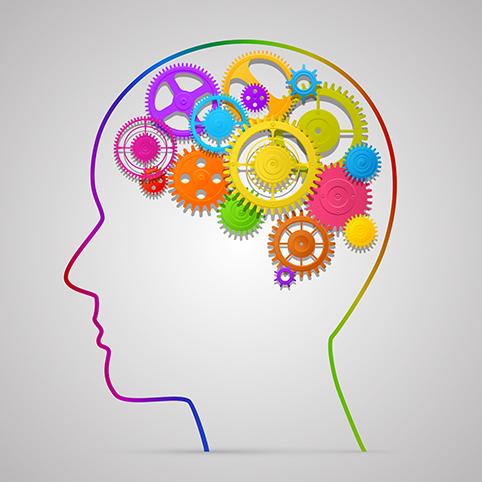Unlock Your Mind’s Potential: 10 Tricks for Sharper Thinking and Memory
Introduction
Meet our expert author, Dr. Sarah Matthews, a renowned neuroscientist and author of several books on cognitive enhancement. With over 15 years of experience in the field, Dr. Matthews is here to guide you on a journey to unlock your mind’s hidden potential. In this article, you will find expert advice and actionable strategies to enhance your thinking and memory, applicable to everyone seeking self-improvement and personal development.
1. Understanding Cognitive Enhancement
Cognitive enhancement is the process of improving cognitive function, which includes memory, creativity, problem-solving, and decision-making. It’s not about changing who you are but optimizing your cognitive abilities. Dr. Matthews explains that these improvements can be achieved through simple lifestyle changes, and in this article, we’ll explore ten of these changes.
Unlocking your mind’s potential begins with understanding the remarkable capacity of the human brain. The brain is a highly adaptable organ, capable of forming new neural connections throughout life. This phenomenon, known as neuroplasticity, is at the core of cognitive enhancement.
The brain’s structure and function can be influenced by various factors, such as environmental stimuli, experiences, and lifestyle choices. Cognitive enhancement focuses on harnessing these factors to boost cognitive function, resulting in sharper thinking, improved memory, and enhanced problem-solving abilities.
Dr. Matthews emphasizes that cognitive enhancement is not reserved for a select few. Regardless of your age or background, these techniques are accessible and applicable to all, making the journey to a better, more efficient mind an attainable goal.
2. The Brain-Boosting Power of Sleep
Quality sleep is a cornerstone of cognitive enhancement. Dr. Matthews discusses the stages of sleep, the role of dreams, and tips for improving sleep quality. Adequate rest helps consolidate memories, enhance problem-solving abilities, and regulate emotions.
The importance of quality sleep cannot be overstated. During sleep, the brain is highly active, consolidating memories, and processing information from the day. Adequate sleep is essential for cognitive functions, including memory consolidation, problem-solving, and creative thinking.
Understanding the sleep cycle is crucial for optimizing your cognitive function. Dr. Matthews explains that sleep consists of different stages, including rapid eye movement (REM) and non-REM sleep. Each stage has a unique role in cognitive processes.
To improve your sleep quality, consider creating a conducive sleep environment, maintaining a consistent sleep schedule, and avoiding stimulants before bedtime. Developing a good sleep routine can significantly enhance your cognitive abilities.
3. Nutrition: Feed Your Mind
The brain is a hungry organ, and the food you consume significantly affects its function. Learn about brain-boosting nutrients such as omega-3 fatty acids, antioxidants, and whole grains. Dr. Matthews offers dietary recommendations to support cognitive function.
Proper nutrition is the foundation of cognitive enhancement. The brain relies on a consistent supply of nutrients to function optimally. Certain foods can boost cognitive abilities, while others can hinder them.
Omega-3 fatty acids, commonly found in fatty fish, nuts, and seeds, are crucial for brain health. They support memory and promote efficient cognitive processing. Antioxidants, found in fruits and vegetables, protect brain cells from oxidative stress, contributing to long-term cognitive well-being.
Whole grains provide a steady supply of energy to the brain, helping you stay focused and alert. Incorporating these nutrients into your diet can enhance cognitive function and improve memory.
4. Mental Exercises for Cognitive Fitness
Mental exercises keep your brain agile. Dr. Matthews introduces brain-training games, puzzles, and exercises that challenge your cognitive abilities. These activities stimulate neural pathways, promoting sharper thinking and improved memory.
Cognitive fitness is similar to physical fitness in that it requires regular exercise. Engaging in activities that challenge your cognitive abilities stimulates the brain, enhances memory, and sharpens thinking.
Brain-training games and puzzles are excellent tools for cognitive fitness. These games challenge memory, problem-solving, and attention. Crossword puzzles, Sudoku, and brain-training apps provide a fun and effective way to exercise your mind.
Furthermore, learning a new skill or language can have a profound impact on cognitive function. It forces the brain to adapt, form new connections, and improve overall cognitive agility. The key to success in cognitive fitness is consistent and varied mental exercise.
5. Mindful Meditation and Stress Reduction

Mindfulness practices reduce stress and improve emotional well-being. Dr. Matthews delves into the science behind meditation and offers practical guidance on incorporating mindfulness into your daily routine to enhance cognitive function.
Stress is a well-known enemy of cognitive function. It can impair memory, disrupt concentration, and hinder problem-solving abilities. Mindful meditation is a powerful tool for reducing stress and improving emotional well-being, leading to enhanced cognitive function.
Mindfulness involves being fully present in the moment and observing your thoughts and feelings without judgment. Dr. Matthews explains that this practice can alter the structure of the brain, promoting cognitive flexibility and memory.
Incorporating mindfulness into your daily routine can be as simple as setting aside a few minutes for focused breathing or meditation. These practices can help reduce stress, enhance emotional well-being, and ultimately lead to improved cognitive abilities.
6. Stay Physically Active for Mental Agility
Physical exercise benefits your body and your brain. Dr. Matthews explains the relationship between physical activity and cognitive function, highlighting the importance of regular exercise in maintaining mental agility.
Physical activity isn’t just beneficial for your body; it’s essential for maintaining mental agility. Dr. Matthews underscores the connection between regular exercise and cognitive function, emphasizing that staying physically active contributes to sharper thinking and enhanced memory.
Exercise increases blood flow to the brain, delivering essential nutrients and oxygen. It also promotes the release of neurotransmitters like dopamine and endorphins, which enhance mood and cognitive function.
To harness the cognitive benefits of exercise, aim for at least 150 minutes of moderate aerobic activity per week. Activities such as walking, jogging, swimming, or dancing can significantly boost cognitive function.
7. Social Connections and Brain Health
Human interactions play a significant role in mental health. Dr. Matthews explores the connection between social relationships and cognitive well-being. Learn how staying socially engaged can positively impact your thinking and memory.
Maintaining social connections is essential for cognitive well-being. Dr. Matthews discusses the profound impact of social interactions on the brain. Engaging with friends and family, participating in group activities, and fostering meaningful relationships contribute to improved cognitive function.
Social connections provide emotional support, reduce stress, and stimulate the brain through conversation and shared experiences. These interactions promote the formation of new neural connections and enhance cognitive abilities.
Dr. Matthews encourages you to prioritize social engagement as part of your cognitive enhancement journey. Whether it’s joining clubs, volunteering, or spending quality time with loved ones, nurturing your social connections can lead to a sharper mind.
8. The Art of Mind Mapping
Mind mapping is a powerful technique for enhancing creativity and memory. Dr. Matthews guides you through the process of creating mind maps and demonstrates how this visual tool can help organize thoughts, solve problems, and improve memory.
Mind mapping is a creative and effective method for enhancing memory and problem-solving abilities. Dr. Matthews introduces this visual technique, which involves creating diagrams that represent the relationships between ideas and concepts.
Mind maps are a versatile tool that can help you organize thoughts, plan projects, and study effectively. By creating visual representations of information, your brain is better equipped to understand, remember, and apply knowledge.
To get started with mind mapping, select a central idea, draw branches that represent related concepts, and add keywords and images to each branch. Dr. Matthews provides practical guidance on how to use mind maps in various aspects of your life, from work to study and personal projects.
9. Utilizing Technology for Memory Enhancement
Technology offers a wealth of tools for enhancing memory and thinking skills. Dr. Matthews explores various apps, games, and online resources designed to improve memory and cognitive function. Discover the digital tools that can boost your brainpower.
In our digital age, technology provides a treasure trove of resources for memory enhancement and cognitive improvement. Dr. Matthews introduces a range of apps, games, and online platforms designed to stimulate your brain and boost cognitive function.
Brain-training apps offer a convenient way to engage in cognitive exercises, enhancing memory and critical thinking skills. These apps often come with various games and puzzles tailored to improve specific cognitive functions.
Additionally, online courses and platforms dedicated to lifelong learning are easily accessible. They provide opportunities for intellectual stimulation and growth, allowing you to acquire new skills and knowledge that will benefit your cognitive abilities.
Dr. Matthews advises integrating technology into your cognitive enhancement strategy, using these tools as supplementary resources to support your journey toward a sharper mind.
10. Lifelong Learning and Intellectual Stimulation
The pursuit of knowledge is a lifelong journey. Dr. Matthews encourages continuous learning and intellectual stimulation, regardless of age or profession. Engaging in new activities, taking up hobbies, and expanding your knowledge can lead to a more agile mind.
Continuous learning is a cornerstone of cognitive enhancement. Dr. Matthews emphasizes that the pursuit of knowledge should be a lifelong journey, applicable to individuals of all ages and backgrounds.
Engaging in new activities, taking up hobbies, and expanding your knowledge base are all ways to stimulate your mind. Learning new skills, whether it’s a musical instrument, a new language, or a craft, creates new neural connections and enhances cognitive function.
Dr. Matthews also suggests exploring new subjects and taking courses or workshops to acquire fresh knowledge and perspectives. The quest for intellectual growth and stimulation is a key factor in unlocking your mind’s potential.
Conclusion
In your journey to unlock your mind’s potential, you’ve discovered an array of strategies to enhance your thinking and memory. Whether it’s through the power of sleep, the art of mind mapping, or the benefits of social connections, these techniques are applicable to individuals seeking self-improvement and personal development. With Dr. Sarah Matthews as your guide, you’re well on your way to a sharper, more agile mind.
Now, it’s time to put these tricks into practice and watch your cognitive abilities flourish. The power to unlock your mind’s potential is in your hands.
Remember, it’s not just about reading; it’s about applying these strategies in your daily life. Your journey to a sharper mind begins today










